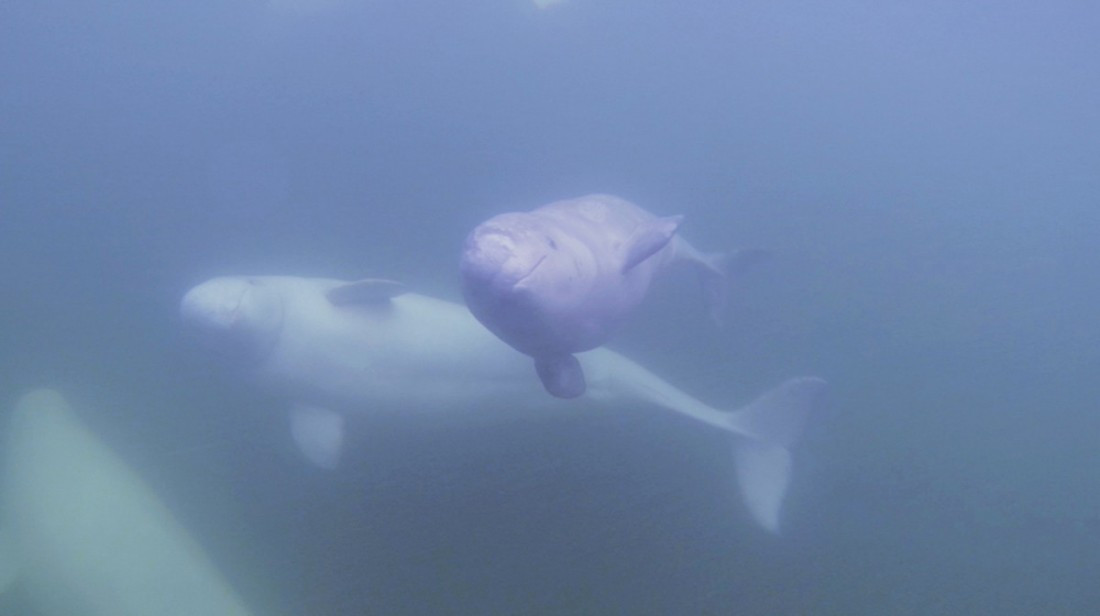A whale of a time
Threatened marine mammals in the Hudson Bay subject of pub discussion
It’s so easy to forget that Manitoba’s a coastal province. But travel some 1,700 kilometers north from Winnipeg to Churchill and spend a few days kayaking amongst the belugas in the Hudson Bay. That sort of memory won’t fade in a hurry. It was that experience that eventually convinced Kristin Westdal to return to the frigid area for a full-time gig.
First, she spent a half-decade running a kayaking operation in the Hudson Bay; it’s the world’s best spot to site belugas, given that some 65,000 migrate through the region in the summer months. Today, she’s working as a marine biologist for Oceans North Canada, working on tracking and researching narwhals and belugas.
“After observing them every day for two months of the year, I just found that I was seeing things that wasn’t reading in the literature,” she says, referencing the years spent leading tours in the sea.
Westdal will be tapping into such expertise - in addition to previous work she’s done on killer whale activities in Nunuvut, and the impact of seismic exploration for oil and gas on narwhals - when she participates in an upcoming panel discussion on the human activity at Finn’s Pub (on the second floor of the Johnston Terminal at The Forks).
“People will say, ‘Why should I care about whales in the Hudson Bay when I’ve got all these other things going on?,’” Westdal notes. “But with all these big questions I think the most important thing to remember is that it’s all connected. It’s one big system. What’s happening in Hudson Bay is affecting us here. What we’re doing here is affecting the Arctic.”
The North has been long eyed by the federal government as a massive source of revenue, especially since Alberta oilsands operations have been taking hits with the rise of the oil boom in North Dakota. The website for Canada’s Economic Action Plan gloats at the prospect of “world-class diamond mines” and “massive oil and gas reserves” we’re tapping into.
But such intense industrial development - which Westdal points out is already happening - has very real consequences on marine mammals. The process to locate underwater oil reserves creates enormous noise pollution, which can interfere with the ability for animals to locate food and breathing holes. The sound of icebreakers only exacerbates the problem.
“Things are changing fast in the Hudson Bay and the Arctic. We have a few weeks more of open water now than we did 10 years ago in Hudson Bay. It’s substantial. Especially for the summering population, the increased development and mining and possibility of increased shipping is a big deal, and could have an effect on them in the long run.”
In spite of such issues, Westdal remains hopeful about the future of the North: she mentions that many people are collaborating to figure out solutions to the issues. Oceans North Canada, for instance, is currently working with the province to draft a beluga habitat management plan, which would protect areas for the mammals. It’s not all lost.
Published in Volume 69, Number 13 of The Uniter (November 26, 2014)







